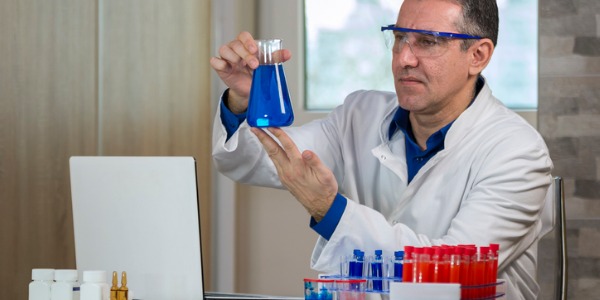What is a Biochemical Engineer?
A biochemical engineer is responsible for the development of new chemical products that can be used by a multitude of companies and individuals.
In fact, most of the products that we come into contact with on an everyday basis are developed through the biochemical engineering process!
These products stretch across every aspect of society, such as:
- agricultural chemicals used to treat and develop foods for public consumption
- petroleum-based products, such as oils, plastics, paints, or other resins
- fibrous products, such as papers or textiles
- cleaning products such as detergents, soaps, perfumes, and cosmetics
What does a Biochemical Engineer do?
Biochemical engineering includes researching, developing, documenting, and producing products that are derived from a combination of organic and lab-made materials that can benefit people and society at large.
Biochemical engineers conduct studies on cells, proteins, viruses, or other biological substances to determine optimal conditions for growth or inhibitors that can stop or kill. They develop and conduct experiments to observe interactions of raw materials with each other and in specific environments. And they develop processes for building new compounds from these materials that can be mass-produced for the general public’s use.

Biochemical engineers work with others in process and product development. They work with research personnel and manufacturing personnel to prepare information about products that are developed (safety sheets, manuals, operating procedures, and directions). They also need to work with fellow chemists, biologists, and engineers to develop new technologies and products so as to continue innovation.
Biochemical engineers make sure that the results of any research, experiments, and collaborations are properly captured and documented. Continued experiments help to determine what does and does not work with various materials, and reviewing past results can enable engineers to determine new methods to attempt in the future. Ideally, they will keep databases that house report data from past experiments.
In addition to maintaining data repositories that allow for analysis of the various compounds worked with and the resultant effects, engineers can use previous data to outline possible future models.
They can alter certain variables, such as quantity of ingredients, exposure to different temperatures and environments, and order of ingredient addition. They can simulate the potential results on computers to determine if there is adequate compound development. If the engineer can see adequate progress in a computer simulation, they can then proceed with a live experiment, simulating the same conditions to see if the theories hold well in practical application.
What is the workplace of a Biochemical Engineer like?
Once hired, recent graduates will usually work with experienced biochemical engineers and will receive formal seminar training from their new employer. As a new engineer is able to gain experience, they will be assigned more complex projects to develop new designs, solve complex problems, and make decisions that are in line with a company’s overall goals and objectives.
The most common everyday work environment for the entry-level employee in this field is a laboratory or manufacturing plant floor. Often, the engineer is working with hazardous chemicals or materials that require extra care and attention to ensure a safe work environment and safely developed products. However, in some senior positions, the office can more resemble a white-collar office environment.
Biochemical Engineers are also known as:
Biochemical Process Engineer
Biochemical Research Engineer